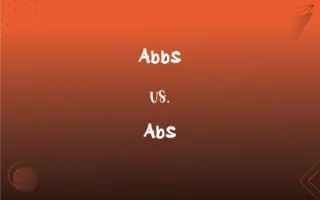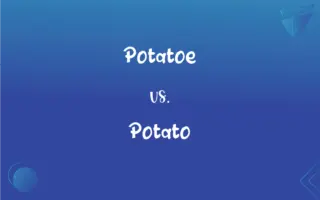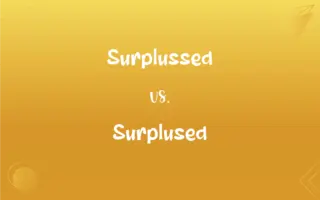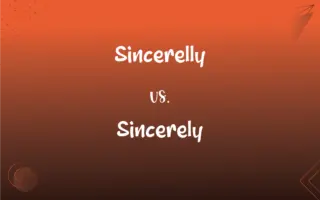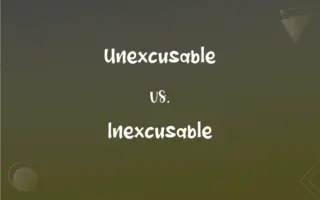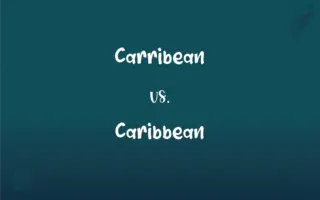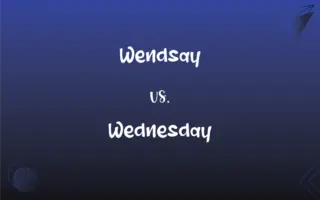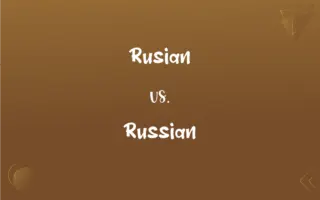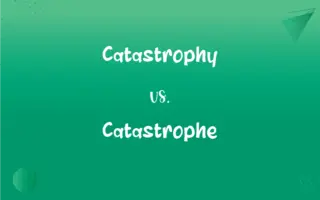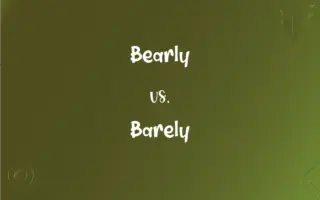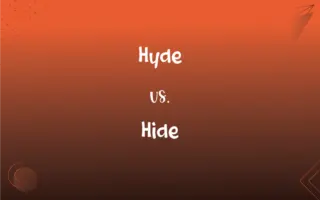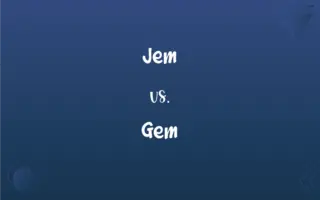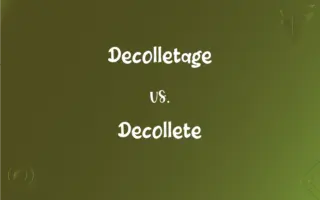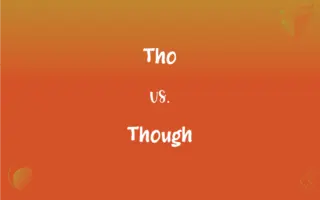Remanent vs. Remnant: Mastering the Correct Spelling
Edited by Aimie Carlson || By Harlon Moss || Updated on March 9, 2024
"Remanent" is an incorrect spelling when referring to a remaining portion; the correct term is "remnant," which means a small remaining quantity of something.

Which is correct: Remanent or Remnant
How to spell Remnant?

Remanent is Incorrect

Remnant is Correct
ADVERTISEMENT
Key Differences
Picture a fabric "remnant" as a leftover piece after an outfit is made.
Think of "remnant" as the "last remnants" of something larger.
Link "remnant" to "remember," as in something left to remember by.
"Remnant" shares "nant" with "tenant," both involve occupying space.
"Remnant" and "ant" both end with "ant," imagine an ant on a leftover crumb.
ADVERTISEMENT
Correct usage of Remnant
Only a remanent population of the species exists in the wild.
Only a remnant population of the species exists in the wild.
She found a piece of remanent fabric in the attic.
She found a piece of remnant fabric in the attic.
There was a remanent smell of smoke in the room.
There was a remnant smell of smoke in the room.
The castle's walls are a remanent of its former glory.
The castle's walls are a remnant of its former glory.
Remnant Definitions
A remaining piece from a larger whole.
She used a small remnant of cloth to patch the tear.
A surviving group or member.
A remnant of the original settlers still lives in the area.
The end part of a cloth roll.
They sold remnants at the end of the roll at a discount.
A surviving trace or vestige.
Fossil remnants offer clues to ancient life.
A leftover quantity.
After the sale, only a few remnants of the stock remained.
Something left over; a remainder.
A piece of fabric remaining after the rest has been used or sold.
A surviving trace or vestige
A remnant of his past glory.
Remnant Sentences
After the sale, only a few remnant pieces of clothing were left on the rack.
He kept a remnant of the original wallpaper as a memory of his childhood home.
They found a remnant of a letter from centuries ago, revealing a secret history.
The remnant of the storm lingered, with light rain continuing into the afternoon.
Only a remnant of the original painting was recoverable after the flood.
The remnant of his meal was saved for later.
She used the remnant of her fabric to make a small quilt.
A small remnant of the group decided to stay behind while the others moved on.
In the library, they stumbled upon a remnant of an old manuscript.
A remnant of the old wall still stands, marking the city's ancient boundaries.
The recipe used a remnant of wine left from the night before.
The remnant of the cake was quickly finished the next day.
The garden was a beautiful remnant of the estate's former grandeur.
After the lecture, a remnant of students stayed to ask questions.
Among the ruins, they discovered a remnant of a lost culture.
She cherished a remnant of her grandmother's dress as a keepsake.
Remnant Idioms & Phrases
A remnant of truth
A small piece of truth in a situation filled with uncertainty or lies.
In his story, there was only a remnant of truth, surrounded by exaggeration.
A remnant of one's former self
A phrase indicating someone has greatly changed, often implying a loss of qualities or abilities.
After the illness, he was only a remnant of his former self, struggling to regain his strength.
A whisper of a remnant
A very small, almost unnoticeable part that's left.
The whisper of a remnant of the old forest can still be seen in the park.
FAQs
What is the pronunciation of remnant?
Remnant is pronounced as /ˈrɛmnənt/.
What is the root word of remnant?
The root word is the Old French "remanant," meaning remaining.
What is the verb form of remnant?
Remnant does not have a verb form as it is only a noun.
Why is it called remnant?
It's called remnant because it denotes what is remaining or left over.
Which preposition is used with remnant?
"Of" is commonly used with remnant (e.g., remnant of a fabric).
What is the plural form of remnant?
The plural form is "remnants."
What is the first form of remnant?
Remnant is a noun and does not have a verb form.
Which conjunction is used with remnant?
Conjunctions like "and" or "or" can be used, depending on the sentence.
Which vowel is used before remnant?
The vowel 'e' is used before remnant.
How do we divide remnant into syllables?
Remnant is divided as rem-nant.
How is remnant used in a sentence?
"A remnant of the ancient wall still stands in the ruins."
Which article is used with remnant?
Both "a" and "the" can be used, depending on whether it’s specific or not.
Is remnant an abstract noun?
No, it's a concrete noun as remnants are tangible.
Is remnant a negative or positive word?
Remnant is neutral; context determines its connotation.
Is remnant a countable noun?
Yes, remnant is a countable noun.
Is remnant a collective noun?
It can act as a collective noun when referring to a group (e.g., a remnant of believers).
Is the remnant term a metaphor?
It can be used metaphorically to refer to surviving elements of something past.
How many syllables are in remnant?
There are two syllables in remnant.
What is a stressed syllable in remnant?
The first syllable is stressed: /ˈrɛm.nənt/.
What is another term for remnant?
Another term for remnant is "leftover."
What is the opposite of remnant?
The opposite of remnant could be "whole" or "entirety."
What is the second form of remnant?
There is no second form; remnant is a noun.
What is the singular form of remnant?
The singular form is "remnant."
Is remnant a noun or adjective?
Remnant is a noun.
Is remnant an adverb?
No, remnant is not an adverb.
What part of speech is remnant?
Remnant is a noun.
Which determiner is used with remnant?
Determiners such as "the," "a," "this," or "that" can be used with remnant.
What is the third form of remnant?
As a noun, remnant does not have a third form.
Is remnant a vowel or consonant?
The word remnant starts with the consonant 'r'.
Is the word remnant imperative?
No, remnant is not an imperative as it's not a verb.
About Author
Written by
Harlon MossHarlon is a seasoned quality moderator and accomplished content writer for Difference Wiki. An alumnus of the prestigious University of California, he earned his degree in Computer Science. Leveraging his academic background, Harlon brings a meticulous and informed perspective to his work, ensuring content accuracy and excellence.
Edited by
Aimie CarlsonAimie Carlson, holding a master's degree in English literature, is a fervent English language enthusiast. She lends her writing talents to Difference Wiki, a prominent website that specializes in comparisons, offering readers insightful analyses that both captivate and inform.
